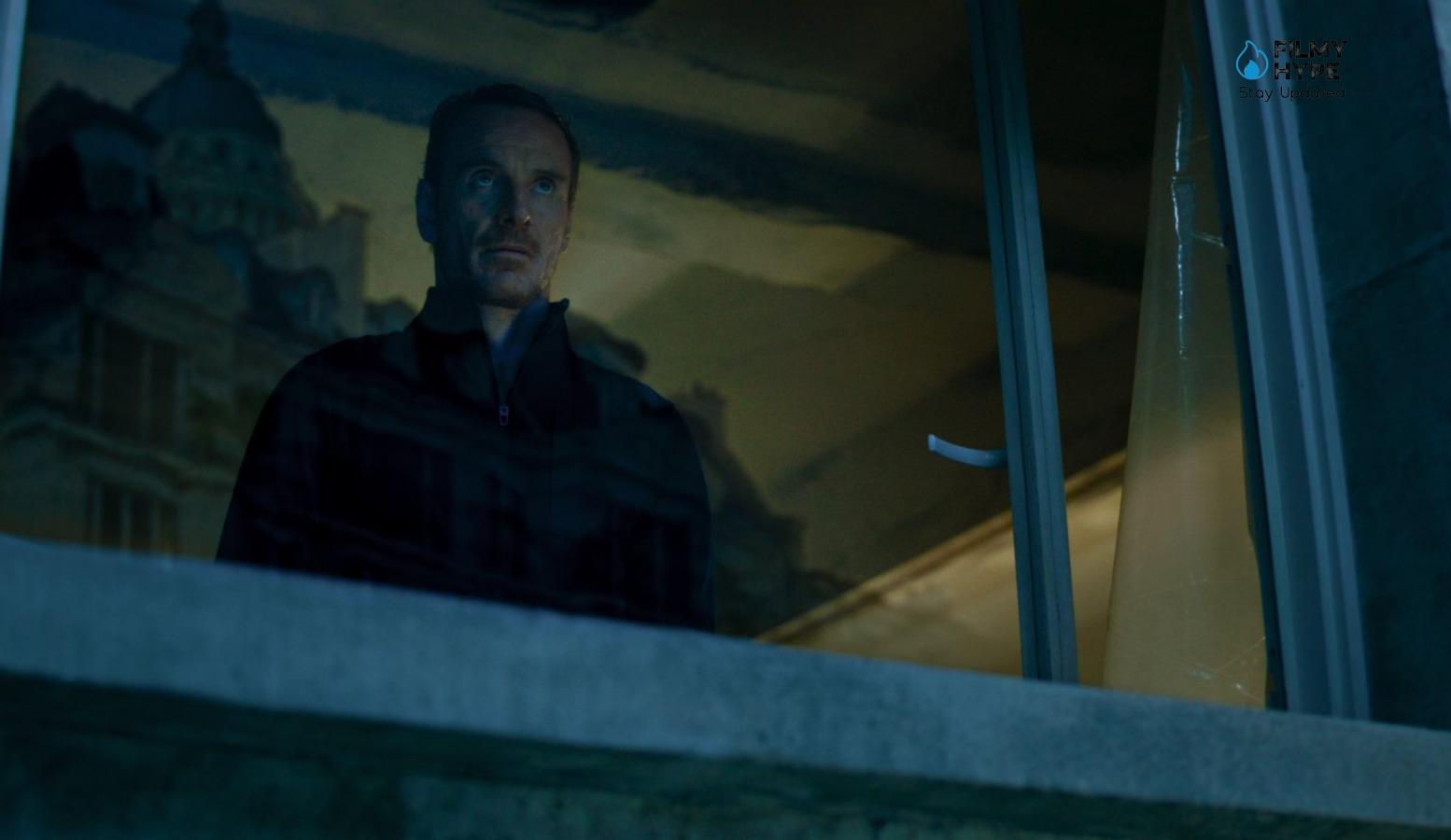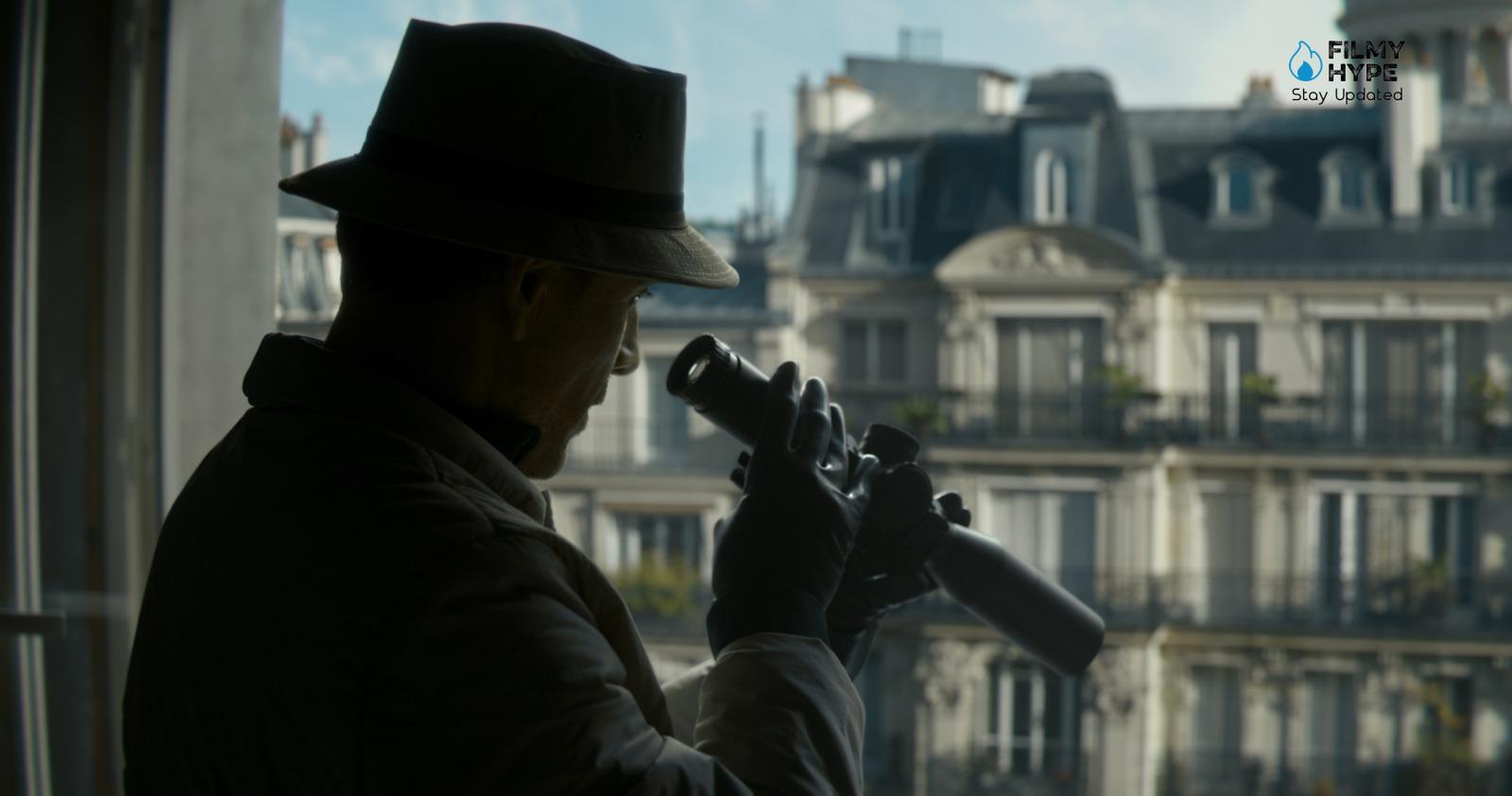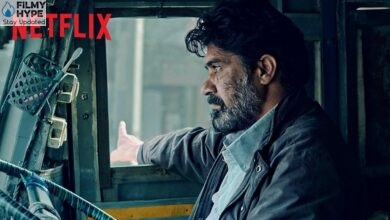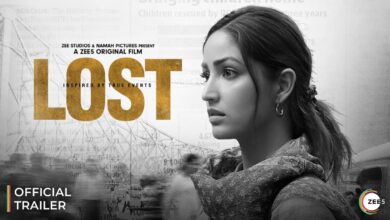The Killer Review: David Fincher in the Mind of the Serial Killer Again | Venice 80
Cast: Michael Fassbender, Arliss Howard, Charles Parnell, Kerry O’Malley, Sala Baker, Sophie Charlotte and Tilda Swinton
Director: David Fincher
Where We Watched: At Venice 80
Filmyhype.com Ratings: 4/5 (four stars)
The Killer, the Netflix film directed by David Fincher, was just presented at the 80th Venice Film Festival. A film which, as Fincher himself said in the press conference, wants to focus on revenge, rather than on the murderer. Let’s analyze the film which will be released in theaters on November 27th and subsequently on Netflix on November 10th. Stick to your plan. Anticipate, don’t improvise. Do not trust anybody. Never give up an advantage. Only fight the battles you are paid to fight. This is the mantra that the assassin played by Michael Fassbender in The Killer repeats to himself every time before eliminating the targets assigned to him. It is he who reveals these rules to us, thanks to the privileged access to his mind that the director of the film, David Fincher, allows us to have. After covering serial killers in Se7en, Zodiac, and Mindhunter, this time he decides to take on their point of view, to discover their code and how their reality may differ from expectations.

Presented in competition at the Venice Film Festival, The Killer, therefore, marks Fincher’s return to the criminal world, after the interlude on the world of cinema by Mank, but it is an extremely particular return, far from what one might expect and which therefore could displease those who expect a film on this subject similar to the director’s works mentioned above. Because with The Killer we are not confronted with intricate plots or surprising twists, nor with frantic rhythms or frequent action scenes. In short, it is not the classic drama based on the plot, but something much more existential and philosophical than it might seem at first sight. It’s a provocation, I agree, but the feeling is that Fincher, among the pioneers of the exchange between cinema and seriality (some people forget it, but House of Cards was truly a revolution), gave a blow to the circle of authorship and a to the beating of the platforms.
The Killer Review: The Story Plot
A hired hitman (Michael Fassbender) awaits his next target in Paris. His days are made up of an obsessively definitive routine, marked by an internal mantra that repeats in his head: always think about what you gain from it, don’t get involved because empathy is a weakness, and ultimately remember that you don’t care. fuck. We know about him that he is a sociopath, that he is effective at his job, and that his ability to overthrow targets in countless ways – from staged accidents to executions to wreak havoc and send very specific messages – has made him rich. However, the Parisian execution goes wrong, and The Killer‘s planned life is turned upside down. Although he continues to repeat the mantra of detachment, efficiency, and planning his work in his head, the work turns into a personal mission, into revenge with four names on the list of people to suffer. The road towards the satisfaction of his desire for revenge will put him in front of people who, in one way or another, are fragments of the experience and experience of which he too is made, while the final objective will prove to be diametrically opposite, allowing him to focus on a bitter truth.
Fincher’s film, based on the French graphic novel of the same name by Matz and Luc Jacamon, starts from one of these very rare mistakes and shows us all the consequences of a heist gone wrong. And it is precisely here that the main interest of this story, as simple and dry as it is effective, lies because the nameless killer we meet in the first minutes is cold, calculating, and above all a dutiful observer of his own rules. Those that allowed him to become a recognized professional, rich, and ruthless, and which he continually repeats in his head like a mantra, goal after goal. But when things go wrong, it’s not enough to simply run away. At that point, he will have to question his own rules and act, for once, based on his thirst for revenge and personal needs.
The Killer Review and Analysis
This film is 118 minutes long, which goes by very quickly. The viewer is captured by the protagonist’s narrative voice from the first minutes. The many action scenes, especially the fight scene in the second half of the film, are full of moments of tension. Fassbender manages to be credible in every second of the film, in which, in addition to having his narrative voice to accompany him, he doesn’t have many lines. Tilda Swinton is also exceptional and, despite having approximately 10 minutes of screen time, manages to dominate the scene. Her looks, which contain a thousand words and emotions, remain imprinted. David Fincher returns to the cinema with a successful action thriller. Fincher’s direction is now a guarantee and even in this case it does not disappoint. The photography, sound, and editing departments don’t disappoint either. Fincher returns to collaborate with Erik Messerschmidt: winner of the Oscar for Best Cinematography for Mank. As for the sound editing instead, he entrusted it to Ren Klyce: winner of the Academy Award for best sound editing for Fight Club.
Finally, behind the editing, we find Kirk Baxter: two times Oscar for best editing for The Social Network and Millennium. In short, if their previous collaborations have brought excellent results, in this case, the film is technically flawless. This sound montage, absolutely out of the box, is functional to convey anxiety and pressure to the viewer. The sound changes in each scene, just as the perspective of the camera on the protagonist changes, or even the gaze of the protagonist himself. Ren Klyce wasn’t very convinced that this type of editing would work, as he said in the press conference he thought it would suck. The use of music with this sense of perspective in the opening scene was based on the idea of Fincher himself. This film, despite not being David Fincher’s best, manages to keep the viewer glued to the cinema seat. Editing, sound and otherwise, photography, direction, and performance combined, make the viewer want to discover the ending.

We arrive at the moment when having been so immersed in the protagonist’s head, the spectator finds himself empathizing with The Killer. The fight scene is so strong that it almost seems three-dimensional. And this makes it a very pleasant film to follow, even if this is not your favorite genre. The only downside to this film is that it seems to get lost in the ending, especially in one of the crucial last scenes. Being a murderer is not as easy as it is portrayed in the movies, where often a romantic or compelling portrayal of their lives is offered, even though what they do remains unacceptable. Fincher, who with each of his films tries to free himself from clichés, therefore places himself in the mind of the serial killer to try to study his thoughts, routines, and gestures. His nameless killer is not a man equipped with particular gadgets and to get what he needs, whether it’s a disguise or an accessory, he turns to online shops such as Amazon. In short, The Killer is a character who tries to remain anonymous as much as possible, and to do so he knows he has to follow a precise code.
Furthermore, its missions are not at all adventures characterized by epic clashes or dynamic chases. This is demonstrated by the opening sequence of the film, where The Killer must await the arrival of his target while remaining hidden in a Paris apartment. At this juncture he makes us participants in his thoughts, thus filling scenes with words in which essentially nothing happens except the act of waiting, interspersed with activities such as stretching, going to buy food, and of course sleeping. A sequence that could discourage those looking for very different rhythms and atmospheres, but if you pay attention, it is difficult not to be captured by the staging that Fincher proposes. With a methodical calm and great attention to detail, the director frames everything with a taste for composition and the precision of a true serial killer, making everything so attractive that it is difficult not to be captivated by this way of telling through images.
These have absolute priority over the film, even over the story itself, reduced here to its most basic level to seek both a sense of detachment consistent with what the protagonist carries out towards reality, and to bring out his perception of things as the true beating heart of The Killer. The Killer therefore works on the existing split between reality and subjectivity, proposing it to us not only through the protagonist’s voice-over but also with precise work on photography, editing, and sound, with which the aim is also to build a sense of growing discomfort and anxiety. For example, when The Killer is in control of the situation, everything flows smoothly, but it only takes a moment for reality to reveal itself to be different, leaving room for greater rigidity that disorientates and cancels out everything we thought we knew. We therefore understand that Fincher is an unreliable narrator, forcing himself to collide with the unexpected and lead us to reflect on our relationship with it and with what he is called to do.
The choice of Fassbender in the title role turns out to be simply perfect. The actor not only returns to give us an interpretation of the highest level after several missteps, but with his glacial face he manages to tell us all the detachment and, if necessary, also the fear of his character. And what he feels we learn to feel too, colliding with a film that requires multiple viewings, necessary to relate in depth with the taste for images that Fincher has always possessed and with which he entertains us. Certainly, however, at first glance, The Killer is one of the works full of meanings and values seen this year. Fincher is the quintessential director of control, so much so that at times his cinema takes on an abstract appearance, detaching itself from reality. An example? The fight scenes of Fight Club are aimed at distancing the viewer, to immediately understand the meaning of the message behind the blows. Also in The Killer, there is a scene of physical combat, a melee that takes place inside a dark house.
As usual, Fincher’s direction is masterful in tracing the geography of the home, allowing the audience to follow a mortal struggle that keeps us on tenterhooks due to its dynamism, complexity, and expository clarity. It is one of the passages in which the unique role that the voice-over plays in this film is most clear. The first fourteen minutes of The Killer are all narrated by Michael Fassbender’s voiceover (the first line is a curse). The voice-over narration accompanies the images of a stakeout halfway between internal monologue and mantra. The murderer continually repeats the rules of his life, his cornerstones. The fight scene takes place much later and has already highlighted the space, the fracture in which The Killer lives: the one between the resolutions that the mercenary keeps repeating to himself and his actions, which go in the opposite direction.

As long as he sneaks into the house and searches it the tension rises, the camera movements are long, extensive. The voiceover seems incessant but stops when the other man attacks The Killer from behind. It’s a non-screaming fight between two professionals who know they have to get it over with without attracting the attention of the police. The Killer is an immersion in the modus operandi of those who kill for a living and for this reason, it explores contemporaneity like never before in Fincher’s cinema. Fassbender’s voice explains why he no longer uses AirBnBs, and what to eat at McDonald’s, Let’s see the searches he does on Amazon and Google Maps. The point is to portray today’s world that often uses “outdated surveillance systems in the face of a real security problem”. A world where it is “impossible not to be seen”, for which The Killer does everything to go at least unnoticed.
Fincher’s portrait of today’s world is very gloomy: it is a reality where technology adapts beautifully to the need to isolate oneself from others or to endanger their safety. It is a world where money makes life easier but does not give a true sense of protection. In his revenge, Fassbender meets the character of Tilda Swinton, who is a Ghost of Christmas Future-style version of him. The interaction between the two is remarkable, Swinton summarizes her character’s manipulative skills well. The real encounter that gives shivers, however, is the one at the end. Not so much because it is terrifying, on the contrary: it is its dry, hasty, frank nature that masks its monumentality. The most sinister meaning of The Killer is hidden, made explicit in the final line, when The Killer, albeit rich and now safe, realizes the distance between him and the 1% he has desperately tried to be part of.
Not fearing death, not even contemplating it is a luxury he cannot aspire to, having himself been the bringer of death for other colleagues. Cynically, it’s not even a matter of superficiality or money: it’s the realization of the difference between those who try as they can to secure a comfortable and sheltered future and those who live well because their status and power keep them sheltered from nature. Thus, a playlist of songs by the Smiths can let us enter the mind of a serial killer, giving us a peek into his soul. However, the distinction between those who have power and those who suffer it remains clear, and insurmountable, even though no house is inviolable, and no lock or camera is infallible. To contribute to the success of the film there is Michael Fassbender who leads the film as the absolute protagonist. Fincher says he loves its uncommon ability to control.
It is enough to see him doing yoga, assembling a sniper rifle, or sleeping on a plane, it is enough to observe his lightless eyes, it is enough to hear his internal litany that acts as the film’s voiceover, to understand what Fincher appreciates in him. That is that millimetric precision in portraying a character who, through subtle, elusive shortcomings, betrays his sociopathy, his distance from normality. As well as the insistent and (deliberately) sing-song voice which always allows us to understand his state of mind and the ultimate meaning of the film. Including the beautiful ending, which to many may seem anticlimactic but in reality, perfectly consistent with the premise of the film. But on the other hand, the fact that we were very far from Se7en, and its astonishing and continuous twists was evident right from the start. But luckily you don’t necessarily need those to make a great film. Sometimes all you need is an excellent director and a great actor.
The Killer Review: The Last Words
The Killer is a dry, straight to the point action thriller with no frills. It focuses everything on its protagonist and on the mastery of Fincher and his historical collaborators (starting from the excellent Kirk Baxter in editing) to give us two hours of pure fun and tension. Very pure genre cinema but of the highest quality. As simple from a narrative point of view, as it is complex in terms of image construction, The Killer is a work that gets rid of the clichés of the figure of the assassin and the revenge movie to propose an in-depth journey into the mind of the serial killer. Superbly directed, photographed, and performed, this is a new jewel in David Fincher’s filmography. Oscar-winning craftsmen make it technically impeccable. Despite the somewhat disappointing ending, it is a film that deserves to be seen in theaters to better appreciate the beautiful cinematography.






